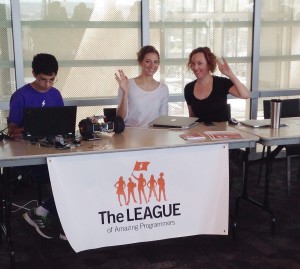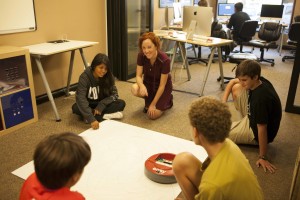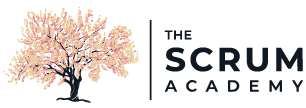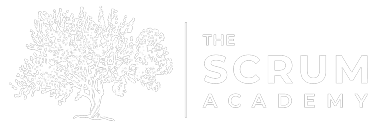Think in Code – The League of Amazing Programmers & The Next Ten Years of Agile
 Concerned about the underrepresentation of women and minorities in software? Interested in breaking the cycle of poverty in your community? If these challenges concern you, then June Clarke and Nicole Clague have an interesting proposition – offer your time and share your passion for programming at The League of Amazing Programmers. By giving young students your time and attention today, you can ignite a dream, change lives and make a real impact in your community by nurturing the next generation of programmers to propel us forward into the next ten years of Scrum and Agile.
Concerned about the underrepresentation of women and minorities in software? Interested in breaking the cycle of poverty in your community? If these challenges concern you, then June Clarke and Nicole Clague have an interesting proposition – offer your time and share your passion for programming at The League of Amazing Programmers. By giving young students your time and attention today, you can ignite a dream, change lives and make a real impact in your community by nurturing the next generation of programmers to propel us forward into the next ten years of Scrum and Agile.
The League of Amazing Programmers, aka The LEAGUE, is a non-profit school dedicated to unlocking the mysteries of coding for kids in grades 5 through 12. Founded in 2006 by Vic and Diane Wintriss, the mission of The LEAGUE is to offer kids all the advantages they need for the demanding science and technology careers of the 21st century by teaching programing in a fun and engaging manner. The instructors at The LEAGUE do not merely teach kids how to write code, but to think in code. The show that programming a lively process of discovery and a fun activity you do in teams.
Apart from June Clarke, the Lead Teacher at The LEAGUE, this unique school relies entirely on volunteer instructors and teaching assistants to advance the students through a series of eight levels, tackling topics like search algorithms, polymorphism, abstraction, inheritance sand other challenging programming concepts. Participation in all eight levels can earn students college credit and\or industry-recognized professional certifications before they turn seventeen. In addition, students work in teams to complete many of their assignments and use programming practices inspired by Agile software development and the Core Protocols. At The LEAGUE you will definitely see kids as young as thirteen pair programming, refactoring and writing code with test-driven development.
Recently, I visited with June Clarke and Nicole Clague, Development Director at The LEAGUE, at their classroom in the San Diego Public Library. I was curious to see with my own eyes what they had to offer and validate all these happy experience reports from parents. From the interview below, you can really see why they are both passionate about the League of Amazing Programmers and how lucky these kids are to have June and Nicole in their lives.
- What is the League of Amazing Programmers? June Clarke (JC): A place where you can write code with friends, develop the skills of a professional programmer and have a damn good time doing it. Nicole Clague (NC): The League of Amazing Programmers is the greatest place ever! That’s all you need to know.
- OK…So what is the mission of the League? NC: To equip the next generation with the necessary problem solving and technical skills for meaningful lives and careers – all through computer programming! JC: We’re supposed to have the same mission, right? ;)
- How did you both get started with the League? JC: I had been volunteering to teach girls programming in my spare time. After a late night out, I sent my resume to The LEAGUE on a whim. Before I woke up the next morning, Vic, the Executive Director had texted, emailed and called me. It was obvious that they were my soul mates; me, the school, and the people running it. NC: I started as a volunteer, helping with social media, which quickly turned into helping with marketing and fundraising…and then a job offer.
- Why do you both stay? NC: I stay for the kids. The majority of our students RUN into the classroom every week, with huge smiles on their faces, excited to learn programming. No joke! They are so amped to come to class and what’s better is that this skill will help them immensely in their future careers and lives. Another thing that keeps me going is our potential. There is incredible potential to disrupt the cycle of poverty in our San Diego community if we can reach enough people. It’s something that would take years (one decade, two decades?) before we would see big results, but the potential is great. Technology improves our lives, but it has also created gaps between those who know how to use it and those who don’t – and those gaps will only continue to widen. When one at-risk child is equipped with the skills and self-confidence to pursue an empowering, well-paying career as a programmer, the trajectory of her life changes – and so do the lives of her family members and hopefully, her community, because she will continue this cycle of giving back and helping others. JC: It’s clearly my vocation and one of the big things I’m supposed to do with my life.
 What impacts have you seen with the students as a result of participating in the program? JC: Some of the kids are better programmers than I was after graduating a four-year degree at Ireland’s top college. They have built software that I use in the classroom and beat professional teams at hackathons. So far, all of our students have gone directly to college after graduating from The LEAGUE. One of them is breezing through Computer Science at Cornell so that she has time to volunteer with Engineers Without Borders. Right now she’s in Belize helping to build a bridge for a community in need. Part our curriculum requires that our students use their skills to build something for public good and they also serve as volunteer teachers for the younger students. Almost all of our teachers are programmers who volunteer their time. Since our students were taught in the spirit of goodwill, they have been immersed in the culture of helping others. NC: I recently interviewed one of our low income (full scholarship) students who told me that The LEAGUE changed her life. She never thought her life would be “very cool”, but then she starting taking our classes and now she wants to be a programmer. She wants to build apps that will help people and solve problems in the world and she recognizes that programming is a valuable skill that will differentiate her from her peers in the future. She says that she loves coming to The LEAGUE because it’s the only place where she can geek out and talk about coding, because none of her other friends know how. What I love most is that she wants to help her parents and help the world. And she’s only in 8th grade. And she’s a girl. God I love her!
What impacts have you seen with the students as a result of participating in the program? JC: Some of the kids are better programmers than I was after graduating a four-year degree at Ireland’s top college. They have built software that I use in the classroom and beat professional teams at hackathons. So far, all of our students have gone directly to college after graduating from The LEAGUE. One of them is breezing through Computer Science at Cornell so that she has time to volunteer with Engineers Without Borders. Right now she’s in Belize helping to build a bridge for a community in need. Part our curriculum requires that our students use their skills to build something for public good and they also serve as volunteer teachers for the younger students. Almost all of our teachers are programmers who volunteer their time. Since our students were taught in the spirit of goodwill, they have been immersed in the culture of helping others. NC: I recently interviewed one of our low income (full scholarship) students who told me that The LEAGUE changed her life. She never thought her life would be “very cool”, but then she starting taking our classes and now she wants to be a programmer. She wants to build apps that will help people and solve problems in the world and she recognizes that programming is a valuable skill that will differentiate her from her peers in the future. She says that she loves coming to The LEAGUE because it’s the only place where she can geek out and talk about coding, because none of her other friends know how. What I love most is that she wants to help her parents and help the world. And she’s only in 8th grade. And she’s a girl. God I love her!- What is the biggest challenge you see for the students? NC: June can speak to this better than I can, but the biggest challenge I see is overcoming self-doubt when troubleshooting code. Programming can be discouraging, especially at the beginning. It doesn’t help that programming is perceived as difficult and only something that “nerds” or “math brains” are good at. The reality is that everyone can code…and everyone should code. JC: I have the privilege of watching little people grow up over the course of several years. Young boys especially go through periods where they find it hard to focus. But they always grow out of it. So far anyway!
- What is your dream for The LEAGUE seven years from now? NC: My dream for The LEAGUE seven years from now is improved access to our program. If a child wants to learn how to code, the dream is that we would already offer one (or several!) classes in their neighborhood – whether at their school, their local library or the local YMCA. I would also like to break away from our exclusive focus on kids and develop a program for adults. Properly addressing poverty requires equal attention placed on the parents and the kids. If the parents are too busy with multiple jobs and long shifts that they can’t get their kids to programming class, we won’t create change. If we were to partner with other local organizations who have career programs in place for adults – we could make our curriculum available to them and then it’s like the parents would be working together with their kids…they would be encouraging each other to stick with the program and master this skill that can change their lives. JC: I don’t have the ability to see that far out, but I do have a plan for the next three years. As Nicole said, it starts with classrooms at libraries and other community centers so that kids can learn to become a programmer without having to go to college… for free if they can’t afford it. Once our next San Diego location is running smoothly, I want to open a school in Tijuana. I see local startups having difficulty getting off the ground because they can’t afford San Diegan programmers to make their idea a reality. I’ve worked with self-taught Mexican programmers who are world class and I’d like help create a lot more of them. It’s a stretch for a lot of Mexicans even to finish high-school and college is only for the rich. So there is a density of smart and motivated people there who just don’t have the money for higher education. Using volunteers as we do, we can provide cheap access to a programming career. And the jobs are waiting. In the near term, I plan to use Saturdays at Carmel Valley to run an incubator where our students can form teams and create things. Once we have some work to show, I hope to be able to forge relationships with local tech companies who will fund our work in exchange for access to our graduates.
- If someone wanted to get involved with the League, how do they get started? NC: They can fill out the contact form at www.jointheleague.org or find us on VolunteerMatch.org. I guess you have my email, too, so that’s always an option. JC: You’re welcome to visit us at our Carmel Valley classroom on Saturdays between 10 AM and noon.
The LEAGUE is always looking to help, so if you want to volunteer your time to help the students please contact them. If you do not have time to give today, but want to sponsor a student or support the mission of the program (like I did this summer), The LEAGUE is also accepting donations, aka cash.
10 years of Scrum articles
Just Be Honest: My First Ten Years of Scrum
Top Ten Articles You Didn’t Read: Best of the Best
That Happened in 2005? Retrospective of the Big Moments of 2005


